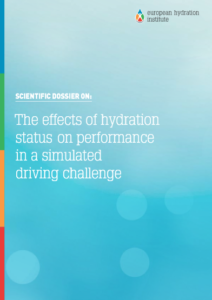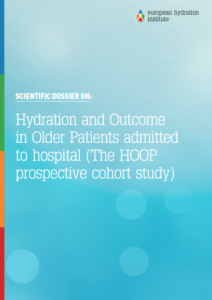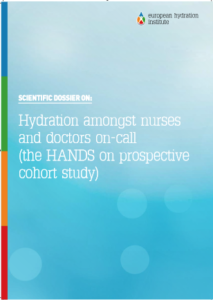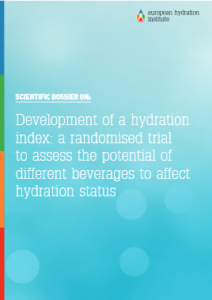Dossiers

The effects of hydration status on performance in a simulated driving callenge
The first dossier focuses on the study by Loughborough University into the effects of hydration status on performance in a simulated driving challenge.

Hoop prospective cohor study paper (hydration and outcome in older patients admitted to hospital)
This study aimed to investigate the prevalence of hyperosmolar dehydration in hospitalised older adults (aged over 65) admitted as an emergency, and to assess the impact on short-term – as well as long-term – outcomes.

Hydration amongst nurses and doctors on-call (the hands on prospective cohort study)
This dossier summarises the HANDS On Prospective Cohort study, which investigated the prevalence of dehydration and assessed the relationship between dehydration and cognitive function, in healthcare professionals during shifts. The study was conducted on nurses and doctors working on medical and surgical admissions wards at a university teaching hospital in the UK.

How well do different drinks hydrate?